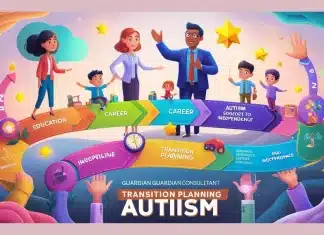Autistic Children
Living with autism presents unique challenges for both children and their parents. Navigating through the maze of therapies, education systems, and support services can be overwhelming. In this article, we delve into the crucial role consulting plays in empowering parents of autistic children.
Understanding Autism
Autism Spectrum Disorder (ASD) is a developmental condition characterized by difficulties in social interaction, communication, and repetitive behaviors. Each child with autism is unique, with a diverse range of strengths and challenges.
Challenges Faced by Parents of Autistic Children
Parents of autistic children often face numerous challenges, including:
- Emotional stress and exhaustion
- Financial strain from costly therapies and interventions
- Difficulty accessing appropriate support services
- Struggles in understanding and meeting their child’s needs

Importance of Consulting for Empowering Parents
Consulting provides invaluable guidance and support to parents, empowering them to navigate the complexities of raising a child with autism effectively. By working with experienced consultants, parents can gain insights, strategies, and resources tailored to their child’s specific needs.
Benefits of Consulting Services
Consulting services offer a range of benefits, including:
- Personalized guidance: Consultants develop individualized plans tailored to each family’s unique circumstances.
- Access to resources: Consultants provide access to information, therapies, and support services not readily available elsewhere.
- Emotional support: Consultants offer a listening ear and emotional support, helping parents cope with the challenges they face.
- Skill development: Consultants empower parents with practical strategies and techniques to enhance their child’s development and well-being.
- Advocacy: Consultants advocate for the rights and needs of autistic individuals and their families within the community and educational systems.
Finding the Right Consultant
When seeking a consultant, it’s essential to consider:
- Experience: Look for consultants with experience working with autistic individuals and their families.
- Credentials: Choose consultants with relevant qualifications and certifications in autism-related fields.
- Compatibility: Ensure that the consultant’s approach aligns with your values, beliefs, and goals for your child.
Tailored Strategies for Each Family
Effective consulting involves developing strategies tailored to the unique needs and circumstances of each family. Consultants collaborate closely with parents to identify goals and implement practical interventions that promote the child’s development and well-being.

Building a Support Network
Consulting helps parents build a strong support network of professionals, peers, and community resources. By connecting with other families and professionals, parents can share experiences, gather information, and access valuable support services.
Providing Emotional Support
Raising a child with autism can be emotionally challenging. Consultants provide a compassionate and non-judgmental space for parents to express their feelings, fears, and frustrations. Through empathy and understanding, consultants help parents navigate the emotional rollercoaster of parenting a child with autism.
Educating Parents
Consultants play a crucial role in educating parents about autism, its characteristics, and evidence-based interventions. By increasing parents’ knowledge and understanding, consultants empower them to make informed decisions about their child’s education, therapy, and support needs.
Enhancing Communication Skills
Effective communication is essential for supporting the development of children with autism. Consultants teach parents strategies for enhancing communication skills, including:
- Visual supports: Using visual aids such as pictures, symbols, and schedules to facilitate communication.
- Social stories: Creating stories to help children understand social situations and expectations.
- Augmentative and alternative communication (AAC): Introducing AAC systems such as picture boards or speech-generating devices to support nonverbal communication.
Developing Individualized Plans
Consultants work collaboratively with parents to develop individualized plans that address their child’s unique strengths, challenges, and goals. These plans may include:
- Behavioral interventions: Implementing strategies to address challenging behaviors and promote positive behaviors.
- Educational accommodations: Advocating for appropriate educational accommodations and supports in school settings.
- Therapeutic interventions: Accessing therapies such as speech therapy, occupational therapy, and applied behavior analysis (ABA).

Tracking Progress
Consultants monitor and track the child’s progress over time, adjusting interventions and strategies as needed. Regular progress reviews provide parents with valuable feedback on their child’s development and help them stay focused on their goals.
Celebrating Achievements
Celebrating achievements, no matter how small, is essential for both parents and children. Consultants celebrate milestones and successes with families, reinforcing positive behaviors and fostering a sense of accomplishment and pride.
Conclusion
Empowering Parents of Autistic Children, consulting plays a vital role in empowering parents of autistic children by providing personalized guidance, emotional support, and practical strategies. By working collaboratively with consultants, parents can navigate the challenges of raising a child with autism more effectively and help their child reach their full potential.
FAQs
How can consulting help parents of autistic children? Consulting provides parents with personalized guidance, emotional support, and practical strategies to navigate the challenges of raising a child with autism effectively.
What qualifications should I look for in a consultant? Look for consultants with experience and credentials in autism-related fields, as well as compatibility with your values and goals for your child.
What types of strategies do consultants develop for families? Consultants develop individualized strategies tailored to each family’s unique needs and circumstances, including behavioral interventions, educational accommodations, and therapeutic interventions.
How can consulting support the emotional well-being of parents? Consultants provide a compassionate and non-judgmental space for parents to express their feelings, fears, and frustrations, helping them cope with the emotional challenges of parenting a child with autism.
What role does celebrating achievements play in consulting? Celebrating achievements, no matter how small, reinforces positive behaviors and fosters a sense of accomplishment and pride for both parents and children.



























